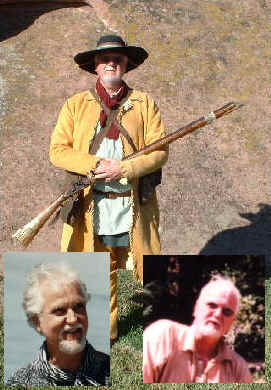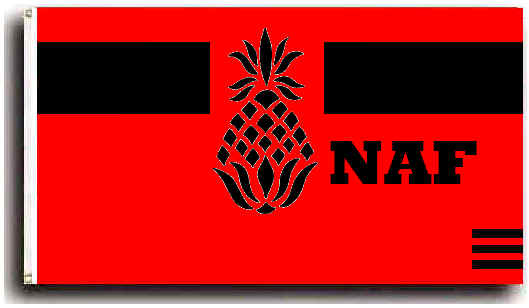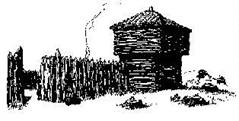|
|
|
..
|
|
I got myself invited to go with several
archery guys, and got a rude awakening. Here's what I learned before we even
got out of the vehicle. In those days these guys washed their clothes in
"Arm & Hammer Baking Soda", took a bath in the same product,
didn't use anything else on them like after shave, scented anything,
toothpaste down to toilet paper. They didn't smoke when they were getting
ready to go hunting, even watched what they had packed for edibles,
"SCENT" was everything.
Here's information that's more than any
of us would have thought of, lots of good stuff to read, and then re-read
again.
-------------------------------------------------------------
- The importance of scent in hunting of
big game animals can never be understated. Bears have an almost mystical
power of smell and is one of the reasons why baiting bears is so
incredibly effective. As of this writing, Washington State still does not
allow baiting for bears. Deer can be bedded a mile away and if the wind is
right, they will bolt away from the smell of a human or other scent which
alerts them to danger. In the same vein, if the wind is right, deer can
almost walk on top of a hunter if they do not smell them. Deer, Bear, and
Elk all heavily rely on their sense of smell to keep them from danger,
arguably scent is their strongest sense. This page is dedicated to the
importance and information needed for the big game hunter in consideration
of scent in hunting.
Tips:
-
The
number one way to hunt animals successfully is to never let them smell
you. Period.
-
Deer,
Bear, and Elk typically feed into the wind. When you spot them, it is a
fair bet that they are facing in the direction of the wind.
-
When
hunting hilly draws and mountainous regions… Thermal winds typically
rise in the morning and fall in the evening. Big game usually bed high
during the day so that they can catch scents coming uphill where most
predators come from, by moving down hill in the evening they move into
thermal winds that are still rising. Game animals often bed in low areas
during the night where they catch any falling scent with the thermal wind
change. When they move uphill in to their beds in the morning, the animals
move into wind thermals that are still falling. When you are scouting and
observing, and see trails, tracks, droppings, rubs, scrapes and beds in
certain areas, and understand how the animals react to thermal currents,
you are better able to use this information to locate animals.
-
Rainy
weather usually helps mute smells in the woods. In addition, snow is a
great advantage in keeping smells contained.
-
Windy
weather will play havoc on a deer’s sense of smell. Really windy weather
makes deer and elk nervous. Look for them in more open areas as they will
switch to relying more on their eyesight than their sense of smell.
-
Burning
tobacco products are generally a good sign to a deer that humans are in
the vicinity. If you need nicotine, turn to use a patch to get your fix.
Burning material in the woods is generally a bad idea, anyway.
-
Wear
boots that have a full rubber or vibram sole. Tennis shoes and porous
footwear tend to leave more scent in areas that you walk in.
-
When
approaching an area you are going to hunt or where you have a tree stand,
stay off of the game trails and the travel corridors into the area. Come
in to the area through the thickets or through an area that game do not
travel.
-
Gather
some vegetation from the area you plan to hunt. Store all of your hunting
clothes in garbage bags with the vegetation. Even your underwear, pack,
etc. This is the best scent mask I have found. (tip: courtesy Jeff D)
-
Travel
through the woods like you are being chased by blood hounds and that your
scent trail should not be followed. Rocky areas do not hold scents, stream
beds wash away scent, high grasses and bushes hold scents.
-
Don't
use chewing tobacco, every spit broadcasts your presence for hundreds of
yards around.
-
Store
your portable tree stand in the off season with cut boughs from branches
from trees in your hunting area. This is a sure way to mask any scents you
might pick up from the storage area. (courtesy Tim T, Yakima)
-
Try
to keep your sweating down to a minimum. Layer your clothes and add and
remove the layers dependent on how cold or warm you are. Polypropylene
makes for great backpacking clothes, but, once you get body odor (sweat,
oil, you name it) the polypro now becomes a huge human scent bag. Try
smart wool, or any other new fabric which repels your sweat. (courtesy R
Johnson)
-
Strip
down completely prior to each hunt and wipe yourself down with unscented
baby wipes (cheap Wal-Mart brand will do) to remove human odor. Then dress
in hunting garb and spray each layer with your favorite cover scent.
(Anonymous)
-
You
can purchase very expensive scent masking clothes. If you decide to use
these items, ensure to follow the manufacturer's instructions to the
letter. Otherwise, the money you put into these devices will be wasted.
-
If
hunting from a stand, take along a urine bottle. Peeing off your stand
will broadcast your scent for miles in every direction. The same thing
applies to human feces. If nature calls, leave your stand and find an area
well away from the area you intend to actively hunt. Dig a big hole. Do
your business. Fill in the hole completely. Then cover the mound with
rocks, logs, bark, hubris etc.
Cover/Masking
scents:
-
The
cheapest and quickest way to help mask your scent is to get in the habit
of continually rubbing the leaves and plants in your hunting area against
your clothes. Continually reach over, pluck some leaves grind them into
your boots, pants, shirt, and hat. Pine, Cedar, Fir, and Sage give off a
very pungent odor which will help mute your own scent.
-
Wash
your clothes separate from your household clothes in commercially
available scent elimination soap, baking soda, or other “soup”. Store
your hunting clothes in a bag or plastic tub away from everyday items.
Place cedar shavings, pine needles, sage cuttings, and the like in with
the clothes to soak up those smells.
-
Make
scent “soup” by making a soup of tree needles, sage leaves, or of
whatever pungent plant material that will be in your hunting area. Fill a
pot with the material and let it cook and reduce in volume, the more it
evaporates, the stronger your soup will be. Strain off the plant material
and pour the remaining soup into a bottle and spray on your clothes.
-
When
coming across fresh deer or elk droppings, get in the habit of rubbing the
droppings into the tops of your boots. If you see fresh scrapes or fresh
urine marks, rub the soaked dirt into your pants. The smell may be a bit
strong, but, this is a very effective way to smell like a local deer.
-
When
hunting in cattle country, do not be afraid to smell like a cow using the
same advice as denoted above. The animals in the area are used to the
smells and usually will not spook to those smells.
-
Commercially
available scents of other animals and things (Fox, Skunk, Raccoon, Dirt,
Cedar, Apple, etc) are very convenient ways to smell like something other
than a human.
-
Purchase
scent elimination soap, deodorant, and spray. Most hygiene products are
packed with smells that are not conducive to productive hunting.
-
Camp
fire smoke can be a great way to mask your own smell if camp fires or
forest fires have been common in the area. Smoke saturates clothing and
easily masks your scent.
-
Fill
a cloth bag with foliage and plants from the area you are going to hunt.
Wet the bag and throw it in the clothes dryer with your hunting clothes.
Great way to get the smell to "bake" into your clothes. Just
don't tell your spouse what you did though!
-
When
hunting in apple country, slice a bunch of apples into your clothes bag to
have the apple smell permeate your hunting clothes. (courtesy rokdog13)
Attractants:
-
At
this time, it is illegal in Washington State to use any attractant when
pursuing bears.
-
Estrus
urine products are sold under the belief that the urine of estrus does and
cows have a particular scent when they are in heat. Little evidence shows
that the actual urine of the female is any different during estrus or non
estrus. The estrus scents usually come from vaginal secretions or glands
located on the legs and feet. Females will typically urinate on these
glands to make them more pungent. This, accompanied by the vaginal
secretions, will signal a buck that the female is in heat. Use the tarsal
glands from a previous year’s doe/cow and spread the commercially
available urine on the harvested glands to make for a very effective
doe/cow in heat smell.
-
When
harvesting your deer or elk, bring along a syringe and a sealable bottle
or baggie. Before removing the bladder, extract the urine first and place
in the container for next year’s hunt.
-
Remove
the tarsal glands of the previous year’s animal (male or female) and
freeze them. Pull it out for the next year’s hunt. You can attach them
to your pack, clothes or whatever. The glands are a great way to smell
like another animal.
Far
fetched, but, interesting ideas regarding scents
-
Some
people have suggested using Vanilla as an attractant scent. Further field
tests are necessary…
-
Washing
or soaking clothes in a heavy brine (salt) solution has been suggested as
a number of animals can smell and are attracted to salts in the air.
Further field tests are necessary.
-
Many
hunters stop eating meat during the hunting season as they believe that if
they do eat meat during the season their odor becomes one like a predator
and can easily spook game animals.
Courtesy - Hunting
Washington State
-------------------------------------------------------------
Now you have something to think about
and will have fun playing with when venturing into the woods, hunting or
scouting in open space. We've spent uncountable hours researching our clothing
to be correct for our persona. Then taking new expensive garments and aging
them for the right look and patina desired. Fine and dandy your set for that
next outing or encampment, your going to "shine" in front of
friends and visitors.
Have you ever really thought about or
looked at yourself to see what others observe, even game animals when you
venture into the unknown. Many do the research and assemble their equipage for
the time period but miss one basic item, your skin color. Think about how
early Native Americans used earth tone paints to help breakup their skin tones
giving them the advantage of getting close - going unnoticed by other humans
or game.
Look at the paintings of the hunters of
old (Indian & European), many used charcoal from their fires to darken
light colored hair (in my case gray). Light colored ash works on sun tanned
skin (face, neck & back of your hands), these are the areas that "shine"
like a bright light when in the forest. Many of the Eastern tribes used the
fire ash to tone down their faces & upper bodies in time of war or when
foraging for game.
Look at the pictures on the left, the
first one you see is how my face "pops out" in the sun light.
My hands are dirty making them tone down but will do the same when in the sun
"shining brighter than wanted". My clothes are dark in color
using the darker earth tones; different shades of brown, gray to black, darker
greens, etc. DO NOT use the red to orange or yellow to lighter shades
as they are harder to tone down. The calico shirts look good at a rendezvous
but don't work if your trying to be unnoticed when on a scout or hunting.
My second attempt was using fire ash
(charcoal ash), the combination made my face and hands tone down. I used a
dark gray head cloth to cover my ears and neck in this trial. I have tried
different earth tone paints with my clothing; a dark tan to dark brown, gray
to black, darker greens, and still like the charcoal ash for what I am looking
to achieve.
Write our editor what you have tried,
new or old ideas are always helpful in getting the correct appearance in
"living history".

|
|







